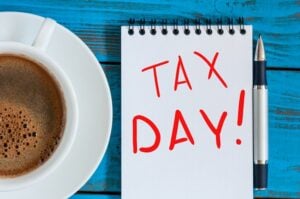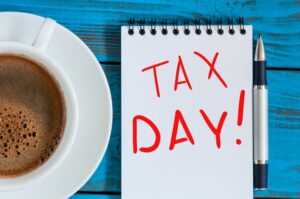
(image via Getty)
Another day, another court reminding the president that yes, the laws of this country really do apply to you, a**hole.
Well, the a**hole is implied. But strongly!
This morning the Second Circuit affirmed U.S. District Judge Victor Marrero’s dismissal of the president’s suit to quash a grand jury subpoena for his tax returns and business records issued by Manhattan District Attorney Cyrus Vance in August of 2019.
As the court notes drily, “A party would ordinarily challenge a subpoena like the one at issue by filing a motion to quash before the state court that had impaneled the grand jury.” But instead, the president sued in federal court, asserting his magic cloak of presidential immunity all the way up to the Supreme Court, where even Justices Kavanaugh and Gorsuch were forced to conclude that the emperor was wandering around with his prodigious flanks exposed.
Kicked back down to duke it out with the weapons of mere mortals, the president is now asserting that the subpoena is overbroad and was issued in bad faith. And because this is a federal 12(b)(6) motion, he’d like the court to simply accept those allegations as true facts.
Sadly the court declined to do so, noting that “A bare allegation of improper motive will not suffice if there is ‘an obvious alternative explanation for the conduct alleged.’” Nor was it persuaded, based on a single New York Times article, that the grand jury investigation begins and ends with the Michael Cohen hush money payment to Stormy Daniels, and thus subpoenas relating to anything else are out of bounds.
In a per curiam opinion, Judges Pierre Leval, Robert Katzmann, and Raymond Lohier wrote:
First, the President’s bare assertion that the scope of the grand jury’s investigation is limited only to certain payments made by Michael Cohen in 2016 amounts to nothing more than implausible speculation. Second, without the benefit of this linchpin assumption, all other allegations of overbreadth—based on the types of documents sought, the types of entities covered, and the time period covered by the subpoena, as well as the subpoena’s near identity to a prior Congressional subpoena—fall short of meeting the plausibility standard.
The court was no less skeptical of conclusory allegations of bad faith by Mr. Vance and a cabal of shady Democrats trying to take down the president.
We are similarly unpersuaded by the President’s reference to the ambient political motivations of third parties. To be sure, if the SAC plausibly alleged that the District Attorney sought to obtain the President’s tax returns for partisan political purposes, that would undoubtedly state a claim of bad faith. But as counsel to the President acknowledged at oral argument, the SAC nowhere alleges that the District Attorney was himself motivated by partisan considerations. The motivations of unspecified “Democrats” cannot be imputed to the District Attorney without specific factual allegations. And the fact that the Mazars subpoena was issued to a third-party custodian adds nothing to the President’s bad faith claim. Such subpoenas are routine.
And indeed, they are routine. Which is what makes this entire charade so infuriating — no one in Donald Trump’s orbit cared about prosecutorial overreach or overweening grand juries (or the FBI, or the FISA court, or coercive plea bargains, or “unmasking”) before Donald Trump and his pals wound up in the klieg lights. And while it’s perfectly legitimate to argue that the state has too much power, decrying bog standard exercises of that power which happen to involve the president is the epitome of bad faith.
Grand juries get to see whatever ever they want, and everyone knows it.
But in the meanwhile, the president will get to delay handing over his tax returns just a bit longer by filing another appeal to the Supreme Court. Vance has agreed to voluntarily stay compliance until the highest court rules, which likely means the grand jury will not be seeing the documents, much less dropping an indictment, until after the election.
And in this case … a delay is a win.
Elizabeth Dye lives in Baltimore where she writes about law and politics.

